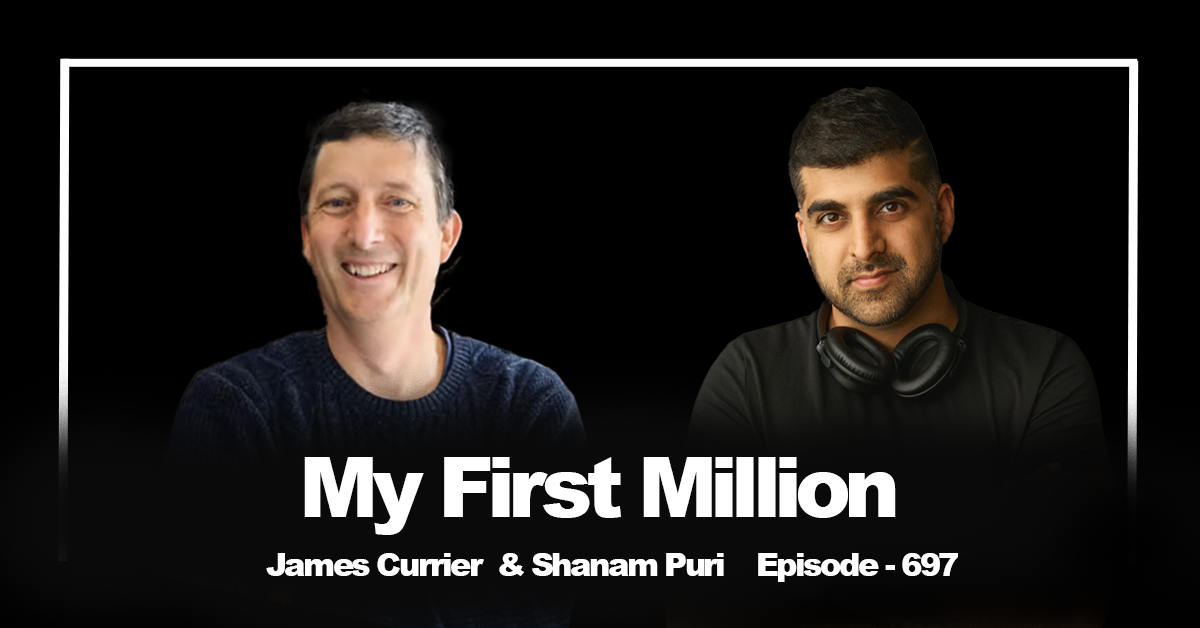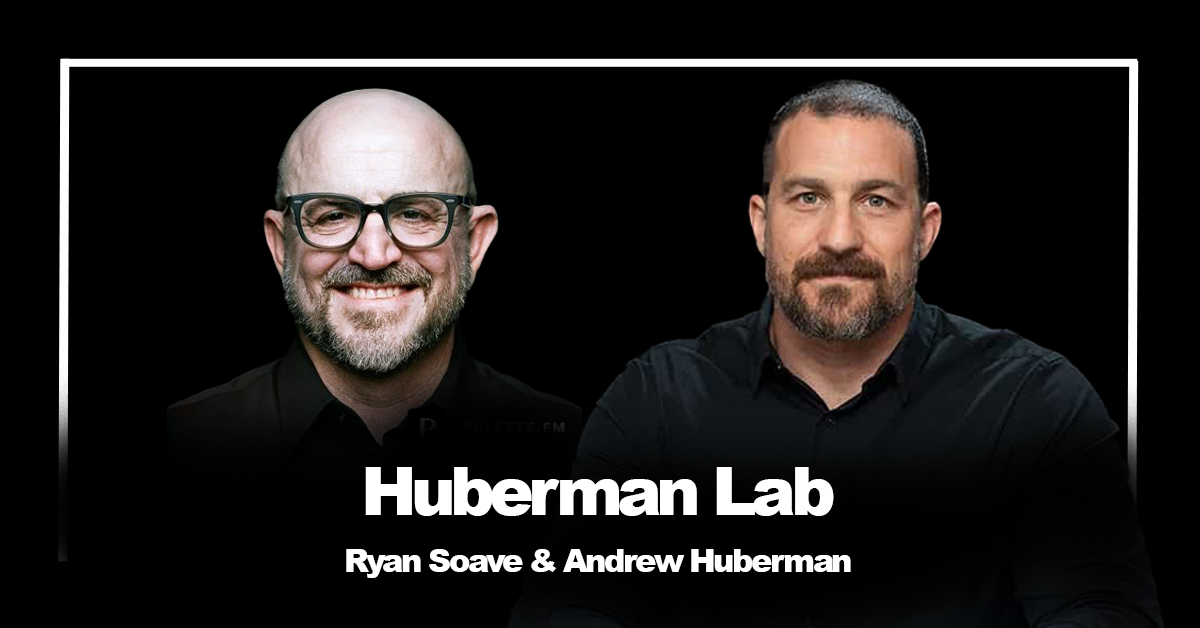Get ready, because this week’s deep dive involves a truly fundamental debate about the economic challenges facing the West and the drastically different paths proposed to fix them.
Steven Bartlett hosted a fascinating, often intense, discussion with two experts who see the world through very different lenses:
- Gary Stevenson: A former star trader at Citibank who famously made millions betting against economic recovery post-2008. He comes from a working-class background and argues passionately that escalating wealth inequality is systematically destroying society.
- Daniel Priestley: A highly successful multi-exit entrepreneur, author, and business strategist who also started from humble beginnings but believes the erosion of economic freedom is the core problem stifling prosperity.
They agree that things are tough for the average person, but their diagnoses and prescriptions couldn’t be more opposed. No time for the full, gripping 2+ hour episode? Here’s a more detailed breakdown of the crucial insights:
The Diagnosis: Why Are People Struggling?
- Gary Stevenson – The Inequality Engine:
- Core Argument: Deliberate policy decisions, especially since 2008 (Quantitative Easing, ultra-low interest rates) and exacerbated by COVID responses (massive government spending), have acted like a giant pump, transferring wealth upward. Money flowed from governments to the broad population but ultimately accumulated with asset owners (the rich) as people paid rent, mortgages, and bills.
- Mechanism: This concentrates wealth (property, stocks) in fewer hands, driving up asset prices beyond the reach of ordinary wages. He sees housing affordability plummeting (citing 3 years vs. 20 years to save for a deposit) as a prime example.
- Consequences: Collapsing living standards for the middle and working classes, inability to afford basics (heating, food), social unrest, and a potential future resembling the extreme inequality seen in developing nations. He starkly claims, “Capitalism’s finished” in its current iteration for delivering broad prosperity.
- His Edge: Having seen the inner workings of finance, he argues this isn’t accidental but a feature of how the system now operates.
- Daniel Priestley – The Shrinking Freedom:
- Core Argument: The fundamental issue is the decline in economic freedom – the ability for individuals and businesses to operate without excessive government interference. He points to metrics like the Economic Freedom Index, arguing high freedom correlates strongly with low poverty.
- Mechanism: Big government (citing the UK state being 45% of GDP), record-high taxes, and stifling regulations smother dynamism, discourage investment, and make it harder to start and scale businesses.
- Consequences: Wealth creators and skilled individuals leave for more favourable environments (the “millionaire exodus” driven by factors like the UK ending non-dom status), reducing the tax base and leaving a heavier burden on everyone else. Poverty increases, and opportunities diminish.
- His Edge: As an entrepreneur, he focuses on the conditions needed for businesses to thrive and create jobs, arguing that current policies are actively hostile to this.
The Proposed Solutions: Radically Different Paths
- Gary Stevenson – Tax the Rich, Rebalance Power:
- Prescription: Implement significant wealth redistribution, echoing the post-WWII settlement. This means:
- Higher Taxes on Extreme Wealth: Not just income, but wealth itself (e.g., a 1% tax above a high threshold like £10m), closing inheritance loopholes (using the Duke of Westminster example), and ensuring corporations pay tax where revenue is generated (point-of-sale taxes to combat profit shifting).
- Political Action: Believes individual entrepreneurial effort is insufficient against a rigged system. Urges ordinary people to get politically engaged and demand systemic change, arguing this is how past generations secured better living standards (healthcare, education, housing).
- Challenges Acknowledged: Admits taxing mobile capital and the super-rich is incredibly difficult and politically challenging, potentially leading to capital flight, but argues it’s the only morally justifiable and necessary path to avoid societal breakdown.
- Prescription: Implement significant wealth redistribution, echoing the post-WWII settlement. This means:
- Daniel Priestley – Cut Taxes, Unleash Entrepreneurs:
- Prescription: Increase economic freedom dramatically. This means:
- Lower Taxes & Deregulation: Reduce the overall tax burden, particularly on businesses and productive individuals, and cut red tape. This makes the environment attractive for investment and talent (using Dubai as a thriving, low-tax example).
- Individual Agency & Adaptation: Emphasizes personal responsibility. Individuals should focus on acquiring relevant skills (often available free online), adapting to the changing economy (remote work, digital businesses), and seizing entrepreneurial opportunities, which he argues are more accessible than ever due to technology.
- Challenges Acknowledged: Accepts technology is disruptive but sees adaptation and embracing new digital/global opportunities as the key, rather than trying to tax or regulate our way back to an old model. Believes government intervention often causes more problems (like inflating housing).
- Prescription: Increase economic freedom dramatically. This means:
Key Areas of Conflict & Insight:
- Housing: Gary sees it as asset hoarding by the rich; Daniel points to government policy (cheap debt) and demographic factors (“housing traffic jam” with older generations in large homes).
- Technology & AI: Gary highlights job displacement and downward wage pressure; Daniel focuses on new global opportunities and the need for new skills, warning the education system is lagging.
- Taxation Specifics: Fierce debate on the practicality and consequences of wealth taxes vs. the growth effects of tax cuts. Gary argues the super-rich can afford it; Daniel argues it stifles the economy and drives talent away.
- The “Leaver” Phenomenon: Are millionaires leaving the UK due to weak consumers (Gary) or punitive taxes/regulations (Daniel)?
- Individual vs. System: Can individuals succeed regardless of the system (Daniel’s emphasis on agency), or is systemic change paramount because the current system is fundamentally broken (Gary’s political call to action)?
- Role Models & Replicability: Can Gary’s or Daniel’s success be replicated? Gary is skeptical about his own path being broadly applicable; Daniel believes the principles of entrepreneurship and adaptation are key.
Key Takeaways & Why It Matters:
- Problem Recognition: Both experts powerfully articulate that the status quo is failing large segments of the population in the West.
- Ideological Divide: The core difference lies in whether you believe the solution involves more government intervention (redistribution, regulation) or less government intervention (market freedom, lower taxes).
- Impact of Globalization & Tech: These forces are reshaping everything. Gary sees them exacerbating inequality; Daniel sees them creating new, borderless opportunities for the adaptable.
- Personal Agency vs. Political Action: The debate forces a consideration of where individuals should focus their energy – on personal economic advancement within the current (or future) system or on fighting for systemic political change.
- The Future is Not Guaranteed: Both paint a picture where inaction or the wrong actions lead to negative outcomes – either continued decline into widespread poverty (Gary) or stagnation and loss of competitiveness (Daniel).
This episode wasn’t about finding easy answers. It was about understanding the gravity of the challenges and the starkly different philosophies competing to address them. It’s a crucial debate that impacts everyone’s future.
Want to dive deeper into the arguments? Listen to the full episode here: [Link to Episode]
Explore Gary Stevenson’s perspective in his book “The Trading Game and find Daniel Priestley’s entrepreneurial resources at DanielPriestley.com.
Food for thought, indeed.
Share the Inspiration!
If you enjoyed these insights, please share this newsletter with friends or colleagues who might find it valuable! Your support inspires us to continue delivering actionable takeaways for your success.
Thank you for being part of our journey! 😊





